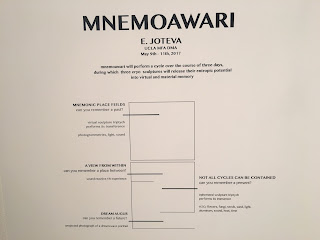DESMA 9 Week 1 Blog
We have covered the topic of "two cultures" in this week, two worlds of thinking, that of the arts and that of the sciences. It is the conception and stereotype that scientists believe literary intellectuals to be "lacking in foresight" and "restricting of art to the existential", while artists think of scientists as "unaware of man's condition" and "shallowly optimistic" that caused the divergence. It is interesting to me that C.P Snow, the man who coined the phrase "Two Cultures" in the 1950s, wanted the title of his lecture to be "The Rich and the Poor". This in itself is evidence that there are many types of culture gaps between groups in our society. I'm from China, and in most Chinese universities students are separated into two groups of liberal art and science. And misunderstandings arise with stereotypes and conflicts between them. For example, most parents want their children to choose majors under the department of science, such as Applied Math or Computer Science, because of their relations to a career with better pay. Thus many young people are confused because maybe what they really want are Philosophy or History, those categorized as "Arts." Personally I love to explore both of these cultures, because they bring me seemingly different but also similar understanding of humans and the world. Now I am on track to be a Psychology Bachelor of Arts. It is the inspirations of both cultures I feel in this field that lead me to this decision.
The RSA education reform video from this week stuck with me. It talked about shifting the paradigm of our current school model. Paradigms were a concept originated by Thomas Kuhn, who saw a pattern in science of a pre-scientific stage turning into a fixed paradigm, which would be shaken by apparent anomalies, and then a 'revolution' would occur following a crisis, leading ultimately to a new and accepted paradigm. Educational paradigms, although shaken by many anomalies, or incidences showing cracks in the system, do not change with ease. Our current system was designed during and for the Enlightenment age. There remains an industrial, production-line mentality for schooling, which is boring kids to the brink of mental challenges, like ADHD. Separating kids as if in a factory, and compartmentalizing them into science or math or English, in other words furthering the two-culture gap, does not foster the innovative world we are trying to create through collaboration of great minds.
TED talk on educational system and need for reform
References:
Snow, C. P. The Two Cultures and the Scientific Revolution. New York: Cambridge UP, 1959. Print.
"An Update on C. P. Snow's "Two Cultures"" Scientific American. Web. 04 Apr. 2017. http://www.scientificamerican.com/article/an-update-on-cp-snows-two-cultures/
Vesna, Victoria. "Toward a Third Culture: Being In Between." Leonardo 34.2 (2001): 121-25. Web.
"RSA Animate - Changing Education Paradigms." YouTube. YouTube, n.d. Web. 05 Apr. 2017.
"Sir Ken Robinson: Bring on the Learning Revolution!" YouTube. YouTube, n.d. Web. 05 Apr. 2017.





Hey! Definitely agree with your concept of how the educational system is "compartmentalizing" students, ultimately working against our goals of innovation as a nation. In my own stance, even set aside from having multiple individuals collaborate with each other, exposing an individual in multiple fields, I believe allowing him/her to strengthen and unify their understanding of multiple disciplines will directly lead to a more creative/innovative mind. Someone who can fluidly navigate the subjects they engage in and most importantly apply them to their experiences and projects is the individual that is most able to optimize their window for creative thinking.
ReplyDelete